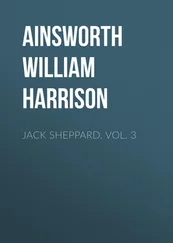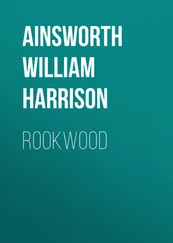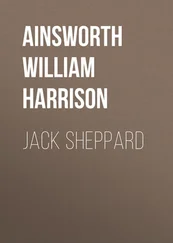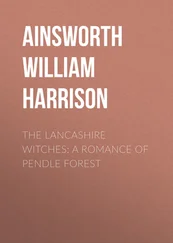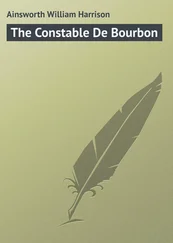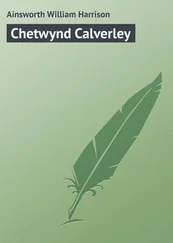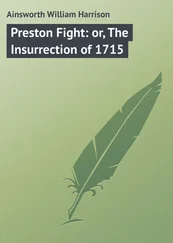W. Ainsworth - Rookwood
Здесь есть возможность читать онлайн «W. Ainsworth - Rookwood» весь текст электронной книги совершенно бесплатно (целиком полную версию без сокращений). В некоторых случаях можно слушать аудио, скачать через торрент в формате fb2 и присутствует краткое содержание. Жанр: Старинная литература, на русском языке. Описание произведения, (предисловие) а так же отзывы посетителей доступны на портале библиотеки ЛибКат.
- Название:Rookwood
- Автор:
- Жанр:
- Год:неизвестен
- ISBN:нет данных
- Рейтинг книги:4 / 5. Голосов: 1
-
Избранное:Добавить в избранное
- Отзывы:
-
Ваша оценка:
- 80
- 1
- 2
- 3
- 4
- 5
Rookwood: краткое содержание, описание и аннотация
Предлагаем к чтению аннотацию, описание, краткое содержание или предисловие (зависит от того, что написал сам автор книги «Rookwood»). Если вы не нашли необходимую информацию о книге — напишите в комментариях, мы постараемся отыскать её.
Rookwood — читать онлайн бесплатно полную книгу (весь текст) целиком
Ниже представлен текст книги, разбитый по страницам. Система сохранения места последней прочитанной страницы, позволяет с удобством читать онлайн бесплатно книгу «Rookwood», без необходимости каждый раз заново искать на чём Вы остановились. Поставьте закладку, и сможете в любой момент перейти на страницу, на которой закончили чтение.
Интервал:
Закладка:
"One thing's certain at least," replied the other farmer—"he were never born at Rookwood. How he came here the devil only knows. Save us! what a crash!—this storm be all of his raising, I tell 'ee."
"He be—what he certainly will be," interposed another speaker, in a louder tone, and with less of apprehension in his manner than his comrade, probably from his nerves being better fortified with strong liquor. "Dost thou think, Sammul Plant, as how Providence would entrust the like o' him with the command of the elements? No—no, it's rank blasphemy to suppose such a thing, and I've too much of the true Catholic and apostate Church about me, to stand by and hear that said."
"Maybe, then, he gets his power from the Prince of Darkness," replied Plant; "no man else could go on as he does—only look at him. He seems to be watching for the thunderbowt."
"I wish he may catch it, then," returned the other.
"That's an evil wish, Simon Toft, and thou mayst repent it."
"Not I!" replied Toft; "it would be a good clearance to the neighbourhood to get rid o' the old croaking curmudgeon."
Whether or not Peter overheard the conversation we pretend not to say, but at that moment a blaze of lightning showed him staring fiercely at the group.
"As I live, he's overheard you, Simon," exclaimed Plant. "I wouldn't be in your skin for a trifle."
"Nor I," added Burtenshaw.
"Let him overhear me," answered Toft; "who cares? he shall hear summat worth listening to. I'm not afraid o' him or his arts, were they as black as Beelzebuth's own; and to show you I'm not, I'll go and have a crack with him on the spot."
"Thou'rt a fool for thy pains, if thou dost, friend Toft," returned Plant, "that's all I can say."
"Be advised by me, and stay here," seconded Burtenshaw—endeavouring to hold him back.
But Toft would not be advised. Staggering up to Peter, he laid a hard grasp upon his shoulder, and, thus forcibly soliciting his attention, burst into a loud horse-laugh.
But Peter was, or affected to be, too much occupied to look at him.
"What dost see, man, that thou starest so?"
"It comes, it comes—the rain—the rain—a torrent—a deluge—ha, ha! Blessed is the corpse the rain rains on. Sir Piers may be drenched through his leaden covering by such a downfall as that—splash, splash—fire and water and thunder, all together—is not that fine?—ha, ha! The heavens will weep for him, though friends shed not a tear. When did a great man's heir feel sympathy for his sire's decease? When did his widow mourn? When doth any man regret his fellow? Never! He rejoiceth—he maketh glad in his inmost heart—he cannot help it—it is nature. We all pray for—we all delight in each other's destruction. We were created to do so; or why else should we act thus? I never wept for any man's death, but I have often laughed. Natural sympathy!—out on the phrase. The distant heavens—the senseless trees—the impenetrable stones—shall regret you more than man—shall bewail your death with more sincerity. Ay, 'tis well—rain on—splash, splash; it will cool the hell-fever. Down, down—buckets and pails—ha, ha!"
There was a pause, during which the sexton, almost exhausted by the frenzy in which he had suffered himself to be involved, seemed insensible to all around him.
"I tell you what," said Burtenshaw to Plant; "I have always thought there was more in Peter Bradley nor appears on the outside. He is not what he seems to be, take my word on it. Lord love you! do you think a man such as he pretends to be could talk in that sort of way—about nat'ral simpering?—no such thing."
When Peter recovered, his insane merriment broke out afresh, having only acquired fury by the pause.
"Look out, look out," cried he; "hark to the thunder—list to the rain. Marked ye that flash—marked ye the clock-house—and the bird upon the roof? 'tis the rook—the great bird of the house, that hath borne away the soul of the departed. There, there—can you not see it? it sits and croaks through storm and rain, and never heeds at all—and wherefore should it heed? See, it flaps its broad black wings—it croaks—ha! ha! It comes—it comes."
And driven, it might be, by the terror of the storm, from more secure quarters, a bird, at this instant, was dashed against the window, and fell to the ground.
"That's a call," continued Peter; "it will be over soon, and we must set out. The dead will not need to tarry. Look at that trail of fire along the avenue; dost see yon line of sparkles, like a rocket's tail? That's the path the corpse will take. St. Hermes's flickering fire, Robin Goodfellow's dancing light, or the blue flame of the corpse-candle, which I saw flitting to the churchyard last week, was not so pretty a sight—ha, ha!"
"But if thou didst see a corpse-candle, as thou call'st thy pale blue flame," said Toft, "whose death doth it betoken?—eh!"
"Thy own," returned Peter, sharply.
"Mine! thou lying old cheat—dost dare to say that to my face? Why, I'm as hale and hearty as ever a man in the house. Dost think there's no life and vigour in this arm, thou drivelling old dotard?"
Upon which, Toft seized Peter by the throat, with an energy that, but for the timely intervention of the company, who rushed to his assistance, the prophet might himself have anticipated the doom he prognosticated.
Released from the grasp of Toft, who was held back by the bystanders, Peter again broke forth into his eltrich laugh; and staring right into the face of his adversary, with eyes glistening, and hands uplifted, as if in the act of calling down an imprecation on his head, he screamed, in a shrill and discordant voice, "Soh! you will not take my warning? you revile me—you flout me! 'Tis well! your fate shall prove a warning to all unbelievers— they shall remember this night, though you will not. Fool! fool!—your doom has long been sealed! I saw your wraith choose out its last lodgment on Halloween; I know the spot. Your grave is dug already—ha, ha!" And, with renewed laughter, Peter rushed out of the room.
"Did I not caution thee not to provoke him, friend Toft?" said Plant; "it's ill playing with edge tools; but don't let him fly off in that tantrum—one of ye go after him."
"That will I," replied Burtenshaw; and he departed in search of the sexton.
"I'd advise thee to make it up with Peter so soon as thou canst, neighbour," continued Plant; "he's a bad friend, but a worse enemy."
"Why, what harm can he do me?" returned Toft, who, however, was not without some misgivings. "If I must die, I can't help it—I shall go none the sooner for him, even if he speak the truth, which I don't think he do; and if I must, I shan't go unprepared—only I think as how, if it pleased Providence, I could have wished to keep my old missis company some few years longer and see those bits of lasses of mine grow up into women, and respectably provided for. But His will be done. I shan't leave 'em quite penniless, and there's one eye at least, I'm sure, won't be dry at my departure." Here the stout heart of Toft gave way, and he shed some few "natural tears"; which, however, he speedily brushed away. "I tell you what, neighbours," continued he; "I think we may all as well be thinking of going to our own homes, for, to my mind, we shall never reach the churchyard to-night."
"That you never will," exclaimed a voice behind him; and Toft turning round, again met the glance of Peter.
"Come, come, Master Peter," cried the good-natured farmer, "this be ugly jesting—ax pardon for my share of it—sorry for what I did—so give us thy hand, man, and think no more about it."
Peter extended his claw, and the parties were, apparently, once more upon terms of friendship.
| Contents |
CHAPTER II
Читать дальшеИнтервал:
Закладка:
Похожие книги на «Rookwood»
Представляем Вашему вниманию похожие книги на «Rookwood» списком для выбора. Мы отобрали схожую по названию и смыслу литературу в надежде предоставить читателям больше вариантов отыскать новые, интересные, ещё непрочитанные произведения.
Обсуждение, отзывы о книге «Rookwood» и просто собственные мнения читателей. Оставьте ваши комментарии, напишите, что Вы думаете о произведении, его смысле или главных героях. Укажите что конкретно понравилось, а что нет, и почему Вы так считаете.

